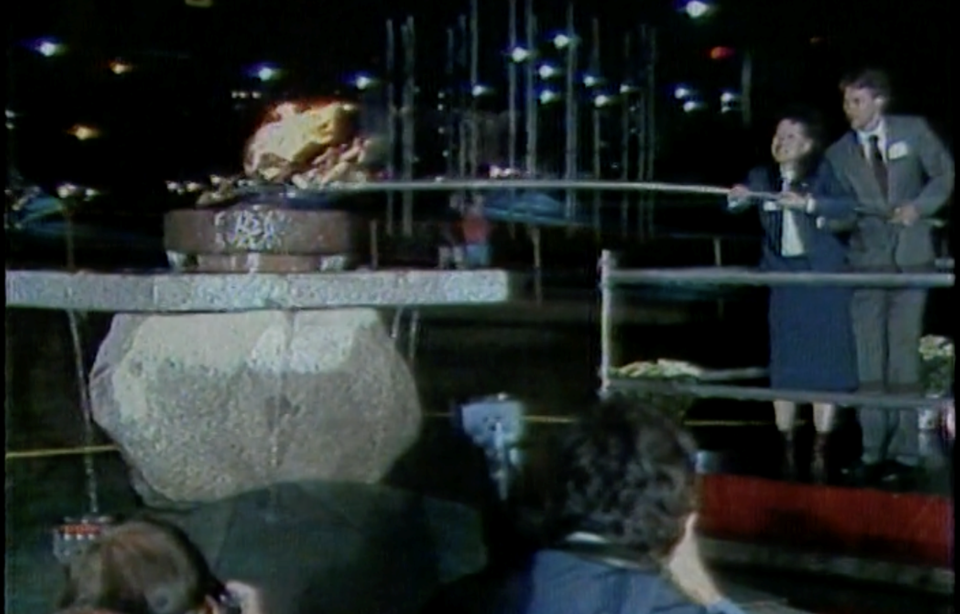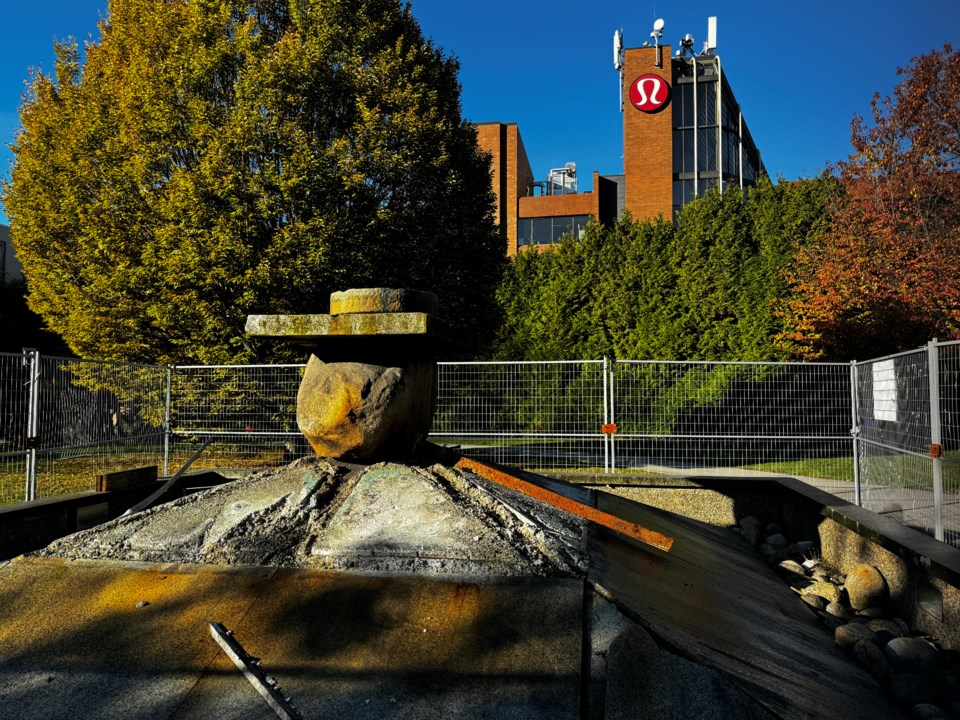War drags on in Ukraine, nearly two years since Vladimir Putin’s Russian army invaded.
There is also no end in sight for the Israel-Hamas war, sparked by the Oct. 7 massacre, the deadliest day for Jews since the Holocaust.
Xi Jinping has not ruled out invading self-governing Taiwan. China’s navy and air force have threatened the Canadians and Americans helping guard transportation routes around the democratic island.
At Christmastime 2023, peace on Earth seems further away than ever. The atomic scientists who keep the Doomsday Clock set it to 90 seconds to midnight. “The closest to global catastrophe it has ever been,” they said last January.
A metaphor for a world in conflict languishes in Kitsilano’s Seaforth Peace Park, south of the Burrard Bridge, in the shadow of Lululemon’s headquarters.
That is where the Peace Flame Monument decays behind a fence.
The park opened in 1949, across Burrard Street from the Canadian Forces Seaforth Armoury. It was the site where the annual, Cold War-era End the Arms Race marches began in the 1980s and 1990s. Hence the location for the city’s 36-year-old monument to remember the Aug. 6, 1945, atomic bombing of Hiroshima.
Nobody knows for sure how many died after the U.S. Air Force Boeing B-29 dropped the bomb named “Little Boy” on the Japanese city. Bulletin of the Atomic Scientists estimates a death toll between 70,000 and 140,000.
Mayor Ken Sim’s plan to abolish Vancouver’s elected Park Board overshadowed everything else at the Dec. 11 meeting, where commissioners rejected a plan that would have brought the fire and water sculpture back to life.
A report projected a $13-million cost to rehabilitate 30 decorative fountains, ponds and waterfalls around the city. The board chose to spend $2.6 million at 11 sites.
“The Peace Flame Monument in Seaforth Peace Park is a non-compliant water feature that was not chosen by the board for rehabilitation in this capital plan,” said a statement from the Park Board.
The fountain is in “very poor” condition, according to the inventory of water features in the city. The current replacement value was pegged at $370,000 and rehabilitation cost estimated at $491,600.
“Staff will be bringing an additional report to the board for decision in 2024 regarding next steps for the water features that were not identified for rehabilitation by the board,” according to the report.
In February 2022, staff told commissioners that the water and gas supply lines were so severely corroded that both were shut off in 2018. The control system for the natural gas supplying the flame “became very unreliable, discharging natural gas into the atmosphere whenever the flame went out.”
A large, bronze sheet from one side of the fountain exposed sharp edges, so the fence was erected for public safety. The briefing note said that staff began discussions with the artist and stakeholders, but work paused due to the pandemic.
The artist, Sam Carter, died Nov. 4 at age 80, “in the afternoon holding hands with the people he loved and who loved him,” said his obituary.
Loved ones gathered in his memory Dec. 1 where Carter taught for 46 years, Emily Carr University of Art and Design.
In a 1987 interview for Kitsilano NTV’s “Message for Peace: The Lighting of the Peace Flame Monument,” Carter said that the goal was to “interpret the spirit of the monument in Hiroshima and not replicate it.”
He used granite from Nelson Island, “a very Indigenous material,” he called it. He incorporated the elements of fire and water and a pyramid representing the north, south, east and west axis.
“I think, in a nutshell, what we've done is we've combined all these basic Earth elements and have animated them in such a way that they replicate or give people the idea of a very peaceful environment and a very delicate environment,” Carter said at the time.

Then mayor Gordon Campbell presided at the Aug. 13, 1987, ceremony, where he joined Hiroshima bombing survivor Kinuko Laskey to light the flame.
“As long as we remember that each man and each woman in the world shares the same commitment to peace, and as long as we remember that each of us can make a small contribution,” Campbell said in his speech. “I think that we're going to be moving further and further along the path of ultimate peace and the elimination of nuclear weapons from the face of the Earth.”
Campbell read a letter from the mayor of Hiroshima. Laskey, who moved to Vancouver in 1953, recounted the horror of suffering physical and mental injuries as a 16-year-old student.
“I hope no one has to follow my footsteps. I believe that bombs are only for destroying things and teach us to hate,” Laskey said. “They cannot give us peace or love. I deeply believe love and understanding is the only way.”


